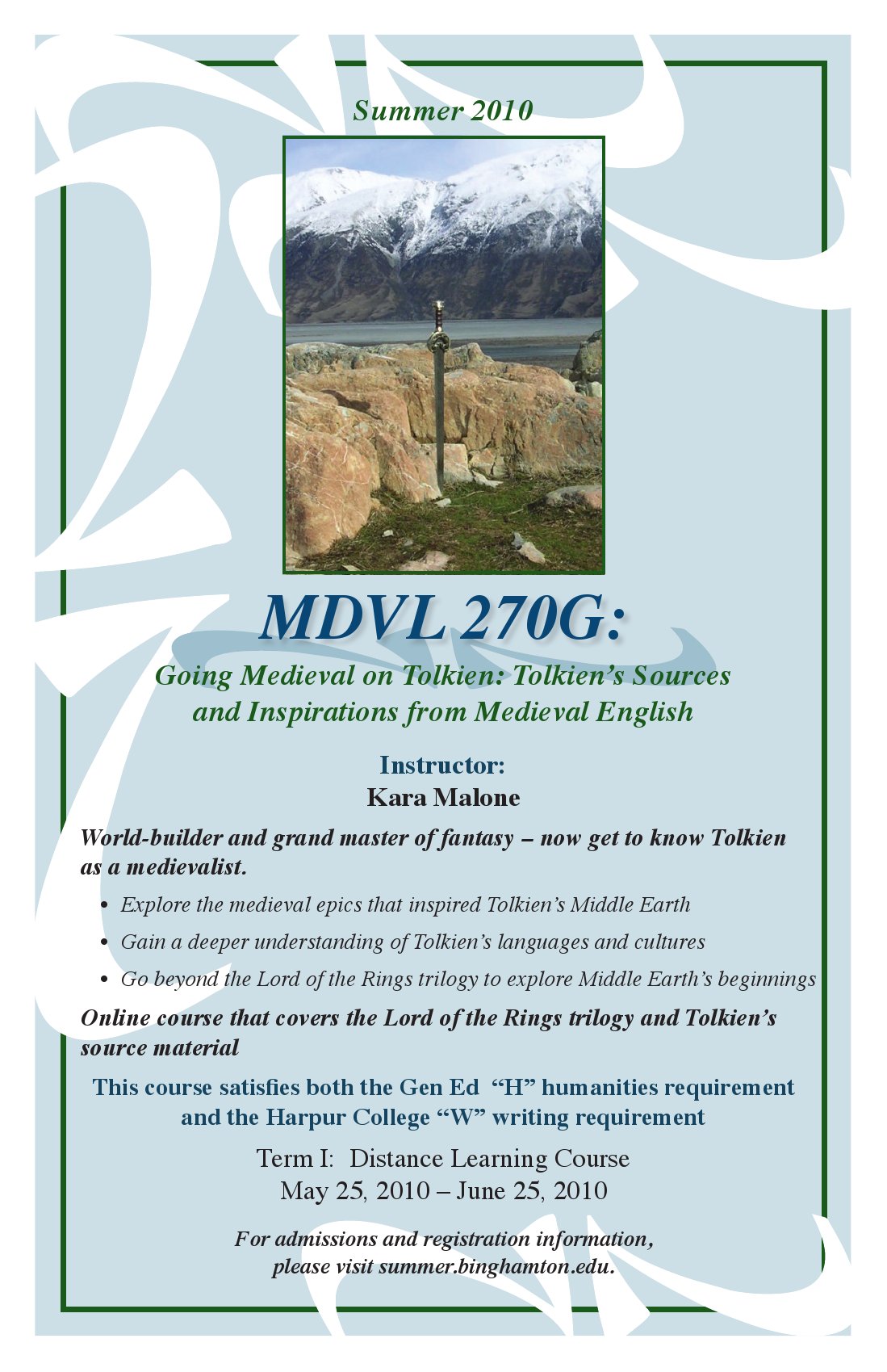Kara Maloney writes: I just wanted to let you know that I will be teaching an online course on Tolkien and his medieval sources this summer entitled “Going Medieval on Tolkien: Tolkien’s Sources and Inspirations from Medieval English”. The course runs May 25th through June 25th, and will include a reading of “Lord of the Rings” as well as some of Tolkien’s medieval sources and various scholarship regarding the two. It’s an open enrollment online course through Binghamton University, one of the SUNY schools. A four credit class, it counts for both General Ed and Writing credit. Here is the course catalog blurb, as well as a pretty flyer for your website.
Going Medieval on Tolkien: Tolkien’s Sources and Inspirations from Medieval English Course Overview J.R.R. Tolkien was a well-known and popular fantasy author who is often considered to be one of the fathers of modern fantasy as a genre. Fewer people are familiar with his academic career, and the contributions he made to medieval scholarship during his professorship at Leeds and Oxford. This course will examine some of the source material that influenced both Tolkien’s language-creation and world-building used in the Lord of the Rings. In reading these Old English and Old Norse epics side-by-side with the Lord of the Rings trilogy, as well as perusing modern critique on both Tolkien’s novels and scholarship, students will build a better appreciation for Tolkien as a fantasy author, as well as a learned medieval scholar. We will explore themes that traverse both medieval and modern works through weekly discussions and reading assignments. These will culminate in a final paper, where the students investigate connections of their own between Tolkien’s source material and his own body of creative works, tying the students’ views into the current conversation in Tolkien studies.
Assignments/Papers Students will respond weekly to the online discussion forum, posting four substantive messages a week in response to discussion questions. Students will turn in three reading assignments over the course of the term, which will include short-answer questions about the context of the reading. Students will write one short 5-7 page essay comparing a medieval work to a portion of Lord of the Rings, including secondary critical scholarship within their essay.



